Debate Sidesteps Climate Crisis
Air Date: Week of September 13, 2024
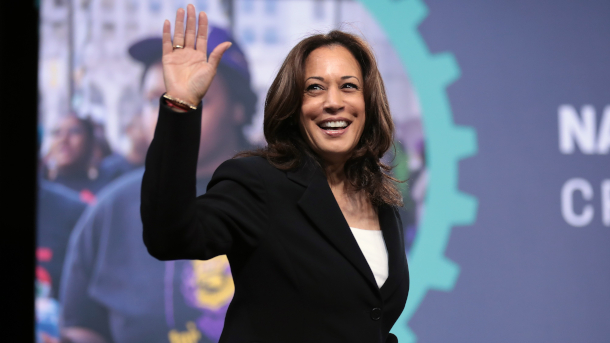
In the debate, Kamala Harris touted both the Biden administration’s expansion of domestic oil and gas production and its investments in clean energy. (Photo: Pachatai, Flickr, CC BY-NC-ND 2.0)
Climate change got just one token question at the first and perhaps only debate between presidential candidates Donald Trump and Kamala Harris. Marianne Lavelle of Inside Climate News joins Hosts Steve Curwood and Aynsley O’Neill to offer other climate questions that should be asked about the Inflation Reduction Act, holding oil companies accountable and more.
Transcript
O’NEILL: It’s Living on Earth, I’m Aynsley O’Neill.
CURWOOD: And I’m Steve Curwood.
Climate change did get some airtime in the one and possibly only debate between presidential candidates Donald Trump and Kamala Harris, but it was only a sidebar to the economy, immigration and abortion.
O’NEILL: Yeah, Steve, if you were looking to the debate to see what direction the candidates might take the country on climate, you didn’t get much. So here to talk about what we wish we had heard more of in this debate is Marianne Lavelle, with our media partner Inside Climate News. Welcome back to Living on Earth, Marianne!
LAVELLE: Thanks so much for having me.
CURWOOD: So Marianne, besides the back and forth on fracking, there was only one explicit question on climate change in this debate, and it was squeezed in at the very end.
O’NEILL: Yeah, with each candidate getting a grand total of sixty seconds to say their piece.
LAVELLE: Not much time at all to talk about this existential crisis. Yeah, so both candidates walked a fine line here when discussing fracking and the direct climate question. They seemed to be primarily trying to please middle of the road moderates who could swing the election.
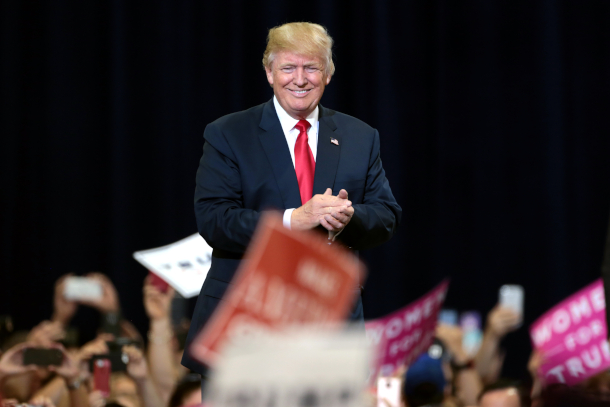
Donald Trump claimed he “got the oil business going like nobody has ever done before.” (Photo: Gage Skidmore, Flickr, CC BY-SA 2.0)
HARRIS: The young people of America care deeply about this issue, and I am proud that as vice president, over the last four years, we have invested a trillion dollars in a clean energy economy, while we have also increased domestic gas production to historic levels. We have created over 800,000 new manufacturing jobs while I have been vice president, we have invested in clean energy to the point that we are opening up factories around the world.
CURWOOD: So, it seems pretty clear that former President Trump and Vice President Harris were focused on making their respective bases just happy enough.
LAVELLE: Yes, you heard Harris emphasize an “all of the above” type approach to energy as well as the Biden administration’s record on creating domestic clean energy manufacturing jobs. In his climate answer Trump made sure to mention his support of tariffs on Chinese cars before veering off topic entirely and accusing president Biden and his son of corruption. But elsewhere in the debate, energy policy was clearly on Trump’s mind and even before the moderators raised the climate question he voiced his fears about a Harris administration.
TRUMP: They'll go back to destroying our country, and oil will be dead. Fossil fuel will be dead. We'll go back to windmills, and we'll go back to solar, where they need a whole desert to get some energy to come out.
LAVELLE: He implied that in contrast, a Trump administration would be cozy with big oil.
TRUMP: So I got the oil business going like nobody has ever done before. They took when they took over, they got rid of it, started getting rid of it, and the prices were going up the roof.
CURWOOD: Well, just a note, the Biden administration has actually made the US the highest producing oil nation in the history of the world.
LAVELLE: Right.
O’NEILL: So I would say, after this debate, we didn’t really hear anything new from either of these candidates on climate. There wasn’t much of a roadmap in terms of where these campaigns would go on climate policy.
LAVELLE: I’d also note that Harris missed an opportunity to separate herself from Biden. Besides rehashing what the administration has already done, she really didn’t outline what further steps in the climate agenda she would take. Overall, the conversation was incredibly detached from the climate emergency at hand. It ended up being about who supports fracking and big oil more. So you could say the fossil fuel industry won this debate.
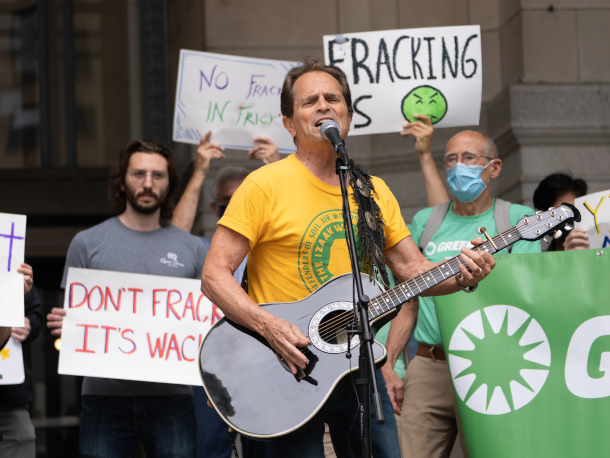
In her 2020 presidential campaign Harris said she would ban fracking. In the September 2024 debate the vice president made it clear that she no longer supports a fracking ban. In this photo, Allegheny County, Pennsylvania community members protest fracking in county parks. (Photo: Mark Dixon, Flickr, CC BY 2.0)
CURWOOD: Yeah, without a word of say the fires out to the west or the big storm in the Gulf of Mexico as the debate was going on. So, Marianne, you and your colleagues at InsideClimate put together a list of ten questions on climate that you thought should have been asked at this debate. Can you start please with Donald Trump. What would you have really liked to hear the moderators attempt to get him to respond to?
LAVELLE: So Trump has in the past said he would reverse the Inflation Reduction Act and take back unspent IRA funds. But what I’d like to know is, what would he plan to do about the hundreds of projects already in the works, many in Republican states?
O’NEILL: Many of which we know are creating jobs.
LAVELLE: Right, the nonprofit group Environmental Entrepreneurs estimates over a hundred thousand jobs are being created because of the Inflation Reduction Act.
CURWOOD: Alright Marianne, what else do you think the moderators should have pressed Mr. Trump on climate issues?
LAVELLE: They could have brought up his stance on wind energy. Harris goaded Trump at one point, saying, "He will talk about, windmills cause cancer." He didn’t really respond to that, but the moment made clear that the Harris campaign sees Trump's views on wind energy as something they can use to ridicule him, and really drive home the point that she made at the convention, that "Donald Trump is an unserious man." But she has said the consequences of having him back in the White House would be extremely serious, and that is certainly true for the future of clean energy. That is why he really should be asked directly what his plans are for wind power. It's now providing 10 percent of power nationwide, and in Texas, which has more wind energy than any other state, it is providing nearly 30 percent of electricity. I would like to ask him would you get rid of wind power? And what would you replace it with?
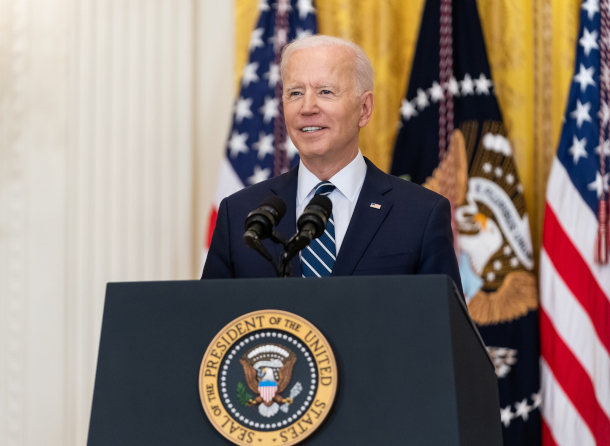
The U.S. has become the highest producing oil nation in the history of the world under the Biden Administration. (Photo: Prachatai, Flickr, CC BY-NC-ND 2.0)
O’NEILL: Well what about Vice President Harris? What was missing from her in this debate when it comes to the climate change question?
LAVELLE: Throughout the campaign, Harris has celebrated her history as a prosecutor who took on big oil and other powerful corporations. But we definitely did not see commitments to that kind of accountability in this debate. In fact, she spent most of the time defending fracking and highlighting the Biden administration’s expansion of domestic oil production.
O’NEILL: Sounds like she focused on how she would eliminate foreign oil reliance more than fossil fuel reliance.
LAVELLE: Yes, a big nod to those moderate voters again.
O’NEILL: What else about climate do you think Vice President Harris should have been asked?
LAVELLE: I would have liked the moderators to ask Harris to what extent she would take on big oil. Would she direct the Justice Dept. to take on those companies?
CURWOOD: Well, of course, there’s big oil on one hand, but there’s a lot of little, but highly influential firms that frack as well.
LAVELLE: Well, Steve, as we discussed, both candidates dug their heels in on fracking. But neither bothered to say what they would do about the water and air pollution that comes from fracking. And it’s interesting that Harris did not even mention the words environmental justice.
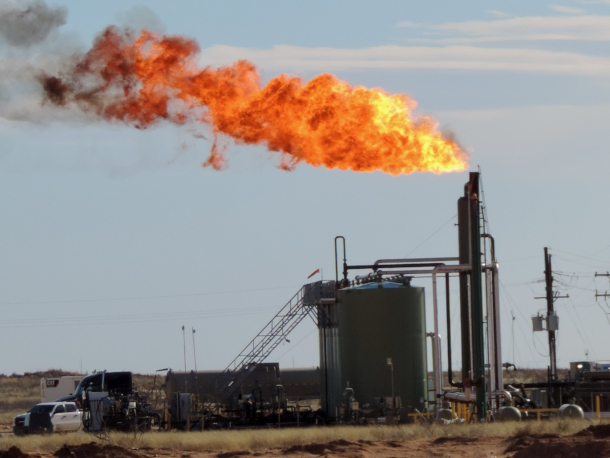
In addition to releasing planet-warming fossil fuels, fracking has local environmental impacts such as polluting water and air. (Photo: WildEarth Guardians, Flickr, CC BY-NC-ND 2.0).
O’NEILL: Yeah, talk about a missed opportunity on her part. Marianne, before you go, what are you really hoping to hear from the candidates about their climate policies in these few short weeks before voters head to the polls?
LAVELLE: Well, Aynsley, I’m not holding my breath. Although the world is on fire it just doesn’t seem that our politics reflect that at a moment as divisive as this one. And you know, I have a lot of questions about how motivated some young climate voters will be to get out and vote if Harris is offering nothing new on climate. In fact, the Sunrise Movement called Harris out for failing to deliver a bold, new climate policy that can meet the scale and urgency of the crisis.
O’NEILL: Well, and polling shows that young voters see climate change as a major issue that’s shaping their vote.
CURWOOD: And the day after the election, one might see that it would or would not have made a crucial difference in the swing states. Marianne Lavelle is a reporter with our media partner, InsideClimate News. Thank you so much for joining us today, Marianne!
O’NEILL: Yes, thank you!
LAVELLE: Thank you both.
Links
Inside Climate News | “10 Tough Climate Questions for the Presidential Debate”
Read the statement from the Sunrise Movement and other youth groups to Harris
Living on Earth wants to hear from you!
Living on Earth
62 Calef Highway, Suite 212
Lee, NH 03861
Telephone: 617-287-4121
E-mail: comments@loe.org
Newsletter [Click here]
Donate to Living on Earth!
Living on Earth is an independent media program and relies entirely on contributions from listeners and institutions supporting public service. Please donate now to preserve an independent environmental voice.
NewsletterLiving on Earth offers a weekly delivery of the show's rundown to your mailbox. Sign up for our newsletter today!
 Sailors For The Sea: Be the change you want to sea.
Sailors For The Sea: Be the change you want to sea.
 The Grantham Foundation for the Protection of the Environment: Committed to protecting and improving the health of the global environment.
The Grantham Foundation for the Protection of the Environment: Committed to protecting and improving the health of the global environment.
 Contribute to Living on Earth and receive, as our gift to you, an archival print of one of Mark Seth Lender's extraordinary wildlife photographs. Follow the link to see Mark's current collection of photographs.
Contribute to Living on Earth and receive, as our gift to you, an archival print of one of Mark Seth Lender's extraordinary wildlife photographs. Follow the link to see Mark's current collection of photographs.
 Buy a signed copy of Mark Seth Lender's book Smeagull the Seagull & support Living on Earth
Buy a signed copy of Mark Seth Lender's book Smeagull the Seagull & support Living on Earth

